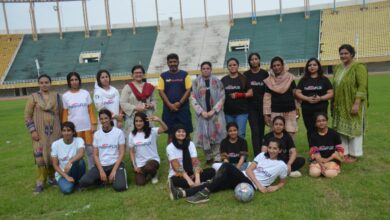Sustainable Social Development Organisation Releases In-Depth Report on Gender-Based Violence in Pakistan

Islamabad, September 30, 2024 — The Sustainable Social Development Organization (SSDO) has released a groundbreaking report, “Mapping Gender-Based Violence in Pakistan: District-Level Analysis of Rape, Kidnapping, and Honor Killings”, which offers a deep dive into the alarming scale of gender-based violence (GBV) across Pakistan’s provinces. The report was launched at an event held at the National Press Club in Islamabad, bringing together key stakeholders, including policymakers, gender experts, and members of civil society.
The report, based on data sourced from provincial police departments via Right to Information (RTI) requests, analyses GBV cases reported in Punjab, Sindh, Khyber Pakhtunkhwa, and Balochistan during 2023. It highlights the stark reality of underreporting and emphasizes the need for more robust data collection practices. According to the findings, although the number of reported cases has increased by the provincial police, thousands more incidents likely remain undocumented.
The report presents a disaggregated view of GBV cases, particularly rape, kidnapping, and honor killings, which continue to plague women across Pakistan. Punjab emerged as the epicenter of reported rape cases, accounting for a staggering 6,624 out of 7,010 cases nationwide—94.5% of the total. This means nearly every reported rape case in Pakistan occurred in Punjab. Comparatively, Sindh reported 188 rape cases, Khyber Pakhtunkhwa 187, and Balochistan 11 cases, showcasing a vast disparity in reported incidents across regions.
Punjab emerged as the epicenter of reported rape cases, accounting for a staggering 6,624 out of 7,010 cases nationwide—94.5% of the total.
Sindh recorded the highest number of kidnappings with 1,666 women reported as abducted—56.4% of the total kidnappings nationwide. Punjab followed with 562 cases, Balochistan with 163, and Khyber Pakhtunkhwa with 36 cases. The significantly higher rate in Sindh raises critical concerns about the province’s safety for women and the effectiveness of local law enforcement.
Honor killings remain a prevalent and deeply rooted issue, with Sindh again leading in numbers. The province reported 258 cases—nearly half of all Honor killings in Pakistan. Khyber Pakhtunkhwa followed with 129 reported cases, Punjab with 120, and Balochistan with 26. These figures reflect the persistent challenge of addressing patriarchal violence in rural and semi-urban areas where such incidents are often normalized.
The vast disparity in reported cases across provinces does not indicate that violence against women is less prevalent in regions like Sindh, Khyber Pakhtunkhwa, or Balochistan. Instead, it highlights a troubling trend of underreporting, where social stigma, fear, and lack of support systems prevent many survivors from coming forward. This underreporting paints a bleak picture of the true scale of gender-based violence in these provinces.
The SSDO report recommends The SSDO report recommends establishing a centralized national database for tracking gender-based violence (GBV) cases, accessible through a public website and mobile app with real-time statistics. It calls for enhanced police training focused on victim-centered approaches to ensure sensitive handling and timely prosecution of cases. Community engagement initiatives are crucial to reduce the stigma associated with reporting GBV, while legislative oversight and stricter enforcement of existing laws are needed to hold perpetrators accountable. The report emphasizes the importance of a coordinated response between law enforcement, policymakers, and communities to address the systemic challenges of GBV in Pakistan.
He appreciated the provincial police for increasing the registration of cases related to Gender-based Violence but showed concern that thousands of cases still go unreported.syed kausar Abbas
Syed Kausar Abbas, Executive Director of SSDO, spoke at the launch and highlighted the pressing need for a coordinated, multi-sectoral response to GBV. “These statistics reflect only the tip of the iceberg. Thousands of cases go unreported due to fear, stigma, and inadequate support systems. The numbers from Punjab, Sindh, and other provinces show that we need a systemic overhaul to ensure survivors feel empowered to come forward and seek justice,” he stated. He appreciated the provincial police for increasing the registration of cases related to Gender-based Violence but showed concern that thousands of cases still go unreported. He also focused on the role of prosecution and judiciary and said that the conviction of cases related to Gender-Based Violence needs to be increased. The courts need to address these cases on a priority basis, he added.
He further emphasized the importance of improving data transparency: “To combat gender-based violence truly, we need to move beyond reactive measures. Real-time, publicly accessible data will help bridge the gap between reported and unreported cases and allow policymakers to make informed decisions.”


